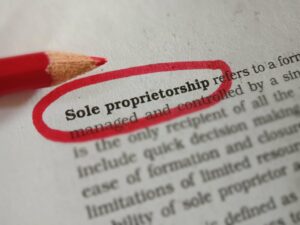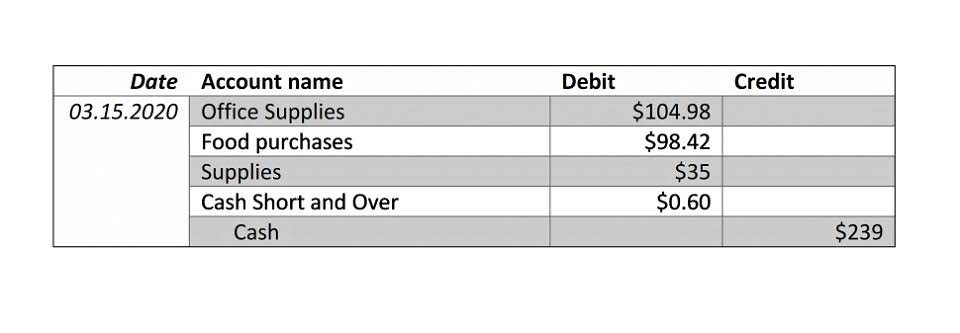The Difference Between Accounting and Accountancy

These are some websites which helps the company to make their accounting more accurate, i.e Zintego, Zoho & etc. Accountancy contains https://www.bookstime.com/ all rules, regulations, principles, conventions to be followed in the process of accounting. Accounting concentrates on the processes for recording transactions and preparing financial reports, calculations and required statements. Meanwhile, accountancy covers a broader range of principles and regulations, including decision-making, auditing, bookkeeping, ethics and the principles guiding these technical processes. Accountancy is the art of communicating financial information about a business entity to users such as shareholders and managers. Whether pursuing a career in financial analysis, compliance, or advisory services, grasping these distinctions empowers individuals to navigate the complexities of finance effectively.

Business

Accountants use this data to prepare financial statements and perform financial analysis. They examine the financial statements prepared by accountants and ensure they represent the company’s financial position accurately. Auditors verify that these financial statements, particularly the ones of public companies that are required to be released annually, are assembled in accordance with generally accepted accounting principles (GAAP). Accountancy also provides a group of services collectively referred to as advisory. There are many services encompassed within advisory some examples that may be familiar are tax advisory, financial advisory and consultancy.
Certified Management Accountant
Accounting involves the collecting and processing of financial data into accounts. This means that from the point of recording information in journals which are the books of original entry for accounting information to the completion of ledgers and the trial balance is the scope of accounting. The process of gathering recording, and summarising accounting information is the definition of accounting and where accountancy we can start to see a clear difference between accounting and accountancy. It focuses on practical applications like financial reporting, analysis, and strategic decision-making support.

BA 302 Business Law and Ethics

However, accounting plays a key role in the strategic planning, growth, and compliance requirements of a company. At larger companies, there might be sizable finance departments guided by a unified accounting manual with dozens of employees. Accountancy is more conceptual as it covers the underlying principles and rules in accounting.
- They play a crucial role in decision-making and ensuring compliance with accounting standards.
- Generally speaking, however, attention to detail is a key component in accountancy, since accountants must be able to diagnose and correct subtle errors or discrepancies in a company’s accounts.
- Regardless of the differences between the roles of accounting vs bookkeeping, ethics is crucial.
- Regulators also rely on accountants for critical functions such as providing auditors’ opinions on companies’ annual 10-K filings.
- Stronger-than-expected economic growth could push the numbers for accounting upward, while a deep recession or prolonged period of stagnation might squelch the demand for accountants in the coming years.
- By understanding these impacts, businesses can leverage these functions for better financial management.
- The branch of accounting which is concerned with the classification, accumulation, apportionment, and control of costs and preparation of reports, is cost accounting.
- Professionals in accountancy play a vital role in ensuring accurate financial records and compliance with regulatory standards.
- Accountancy is the body of knowledge consisting of certain rules and principles to be kept in mind while recording all the transactions, and classifying and summarizing those financial transactions.
Boise State University’s Online Master of Science in Accountancy (Online MSA) program can help you take the next step in your accountancy career. It is also worth noting that both career paths offer strong income potential, above-average job security, and plenty of upward mobility. As for which one can lead to a more successful and satisfying career, that depends largely on your specific goals, personality, and unearned revenue skill set. Job growth in the accounting field closely correlates to the health of the economy as a whole. Stronger-than-expected economic growth could push the numbers for accounting upward, while a deep recession or prolonged period of stagnation might squelch the demand for accountants in the coming years.
- Accounting is a versatile word, often used to be a blanket term for professionals working in accounting.
- Accountancy can be defined as the systematic knowledge of accounting which focuses on the principle of gathering all the prevalent information and using the financial data.
- Accounting is a broader field that encompasses bookkeeping and other essential functions.
- Both Accounting and Accountancy are evolving rapidly due to advancements in technology and changes in regulations.
- Managerial accountants also analyze financial records to make predictions in various contexts such as operations, logistics and risk.
